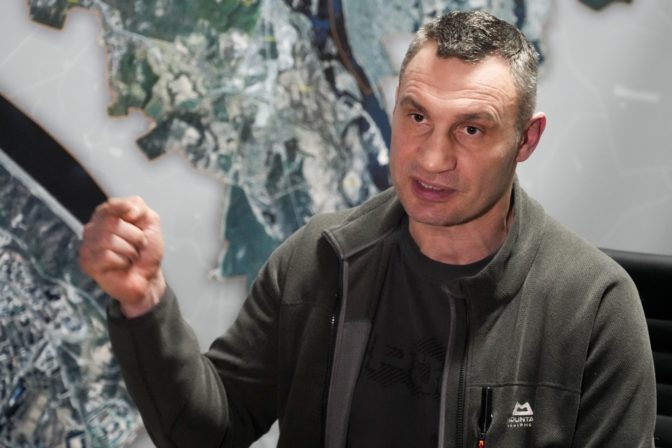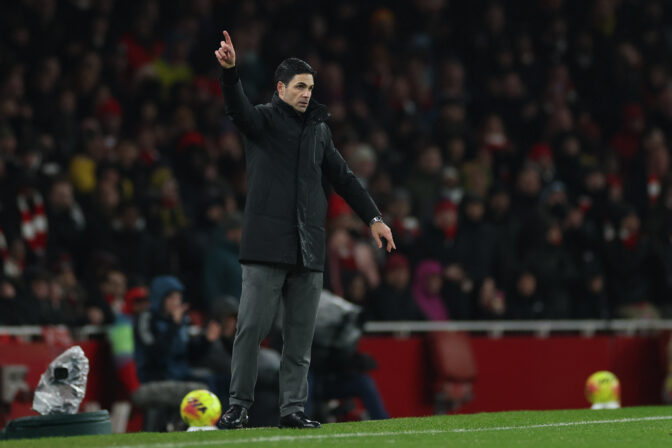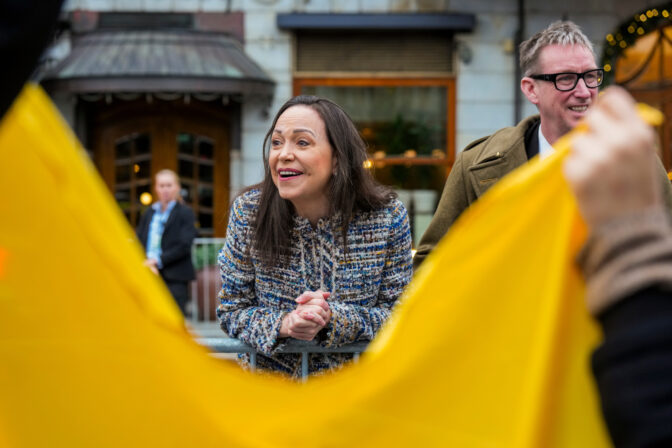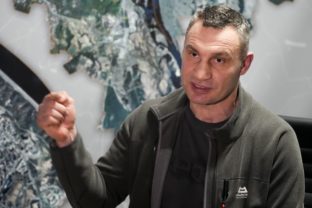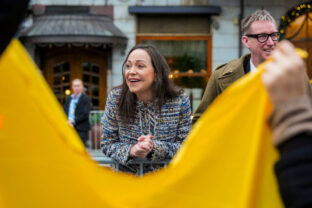VISEGRAD/BRATISLAVA, October 8, (WEBNOVINY) – Slovak President Ivan Gasparovic held bilateral talks with Hungarian counterpart Pal Schmitt in Visegrad, Hungary on Saturday, where the summit of Visegrad Group (V4) presidents is taking place. Gasparovic commented after the meeting that in spite of having some differences in opinions, they are both interested in issues that are for the benefit of mutual relations.
The presidents of the Czech Republic, Hungary, Poland and Slovakia have agreed that over the twenty years of its existence, the Visegrad group has gained authority and fulfilled the goals it was established with. Hungarian President Pal Schmitt highlighted the fact that all members of the group have become EU and NATO members, which was one of their initial goals. “The cooperation has no alternative. We rely on each other,” said the president, adding that the countries help each other with floods as well as energy security. “We are ready to share our experience with others,” he added.
Czech President Vaclav Klaus said that over the twenty years of V4 existence, friendship between its members has intensified. “There is a standard relation between friendly neighboring countries. These countries do a lot of things together,” he said. According to him, a task for the future is to focus on common interests, identify them, formulate them, and advocate them on the EU level. According to Polish President Bronislaw Komorovski, there is a need to talk about central European patriotism. “This is a big challenge for all of us,” he remarked. Slovak President Ivan Gaspavic emphasized the idea of Visegrad cooperation that is based on aspects that connect and on those that could divide.
The presidents reject the vision of EC President Jose Manuel Barroso of a tighter EU integration. “We cannot imagine a strong Europe without strong countries. We have to preserve our national character,” President Schmitt stressed. According to Klaus, Barroso is tragically mistaken. Current problems of the EU are consequences of a fast integration and arguments that the EU should expand more and more. “His proposal is that we continue in that. That is fatal,” Klaus commented. President Gasparovic noted that Slovakia is aware of some common EU policies, but of specific features of each country, too. “Member states do not give up their sovereignty, but lend it,” he pointed out.
The Visegrad Group was established on February 15, 1991 in the Hungarian town of Visegrad by the top representatives of Czechoslovakia, Hungary and Poland. Czechoslovak President Vaclav Havel, Polish President Lech Walesa and Hungarian Premier Jozsef Antall signed a declaration where they committed their countries to intensify regional cooperation and strengthen the identity of this region in central Europe. V4’s cooperation is not institutionalized; it has no central administration or headquarters. On the political level, it is based on the principle of regular meetings of its representatives at several levels from presidents and prime ministers to foreign ministers and expert consultations. Official summit of premiers is held annually. In the period between the summits, one country presides the group. In June, 2010, the presidency of Hungary finished and as of July 1, 2010 until June 30, 2011, V4 has been presided by Slovakia. Slovakia handed over the presidency to the Czech Republic.
SITA – special correspondent

